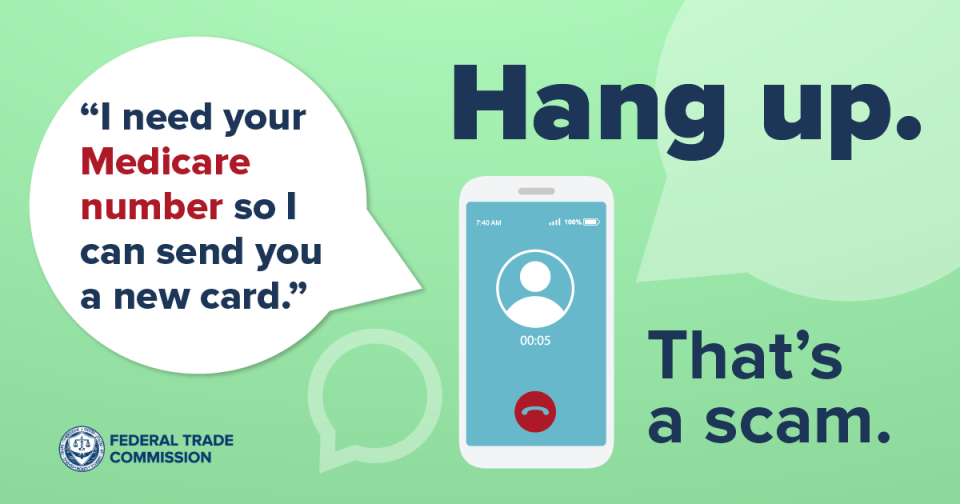Scammers spend their days pretending to be someone they aren’t, like government agents or medical staff, to con us out of information and money. That’s why we join our friends at the Senior Medicare Patrol in raising awareness about Medicare imposters during Medicare Fraud Prevention Week. If you or someone you know has Medicare, here’s advice to help protect your time, money, and information from Medicare imposters.
Don’t share your Medicare number. Your Medicare number is valuable. Don’t share it over the phone with anyone for any reason — and scammers have a lot of fake “reasons.” Scammers ask for Medicare numbers to “verify your identity” or to offer you “new plastic cards.” But Medicare won’t call you to verify your card, and Medicare cards are paper, not plastic, and they’re free. Other scammers claim they’ll send a Medicare-approved back or knee brace if you give them your number. But those are scams, too. If your doctor wants you to have equipment, they’ll talk with you about it at an appointment, not have someone call unexpectedly to offer it to you. Report these kinds of scams to the FTC at ReportFraud.ftc.gov.
Check your monthly Medicare statement. Do the details about your recent visits, services, and products match your records and receipts? If not, or your statement shows double charges, charges for something you didn’t get, or charges for things your doctor didn’t order — like back or knee braces — call your doctor or health plan. If you suspect health care fraud or abuse, contact your state Senior Medicare Patrol.
Report medical identity theft. If you think someone used your information to get medical care, get copies of your medical records from each doctor, hospital, pharmacy, and other place the thief might have used your information. Review the records and tell your provider about any errors. Report the theft at IdentityTheft.gov and create a plan to recover from problems the identity theft may have caused.


ok.
I got a callfrom a women offering me a new plastic card. I knew it was a scam immediately and demaned to know her bame. She gave me her name a JENNIFER WILSON, said she was in ORLANDO, FLORIDA and gave me her phone number as 305=310-0243. I callws her back and it rang but there was no answer.
There is a major Medicare scam going on. They will not tell you the name of there company, they just hang up. They do target you and I’m getting over 40 calls a day from numbers all over the US. The numbers get blocked.
In reply to There is a major Medicare… by S. Willis
Yes, I agree with what's going on because it's been happening to me.
It's horrifying.